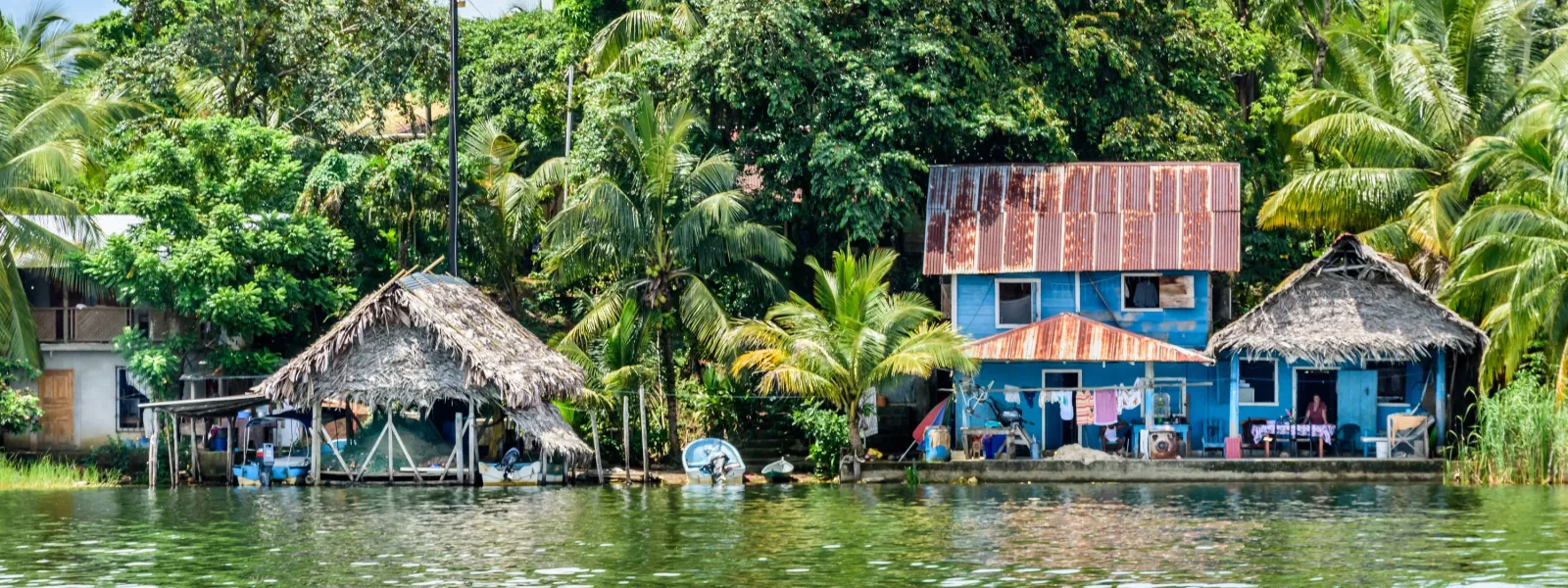
How the Inter-American Court can help protect human rights in the face of the climate emergency
Photo: Lucy Brown on Shutterstock.The climate crisis has been identified as the most urgent problem facing humanity and the greatest threat to human rights.
In this context, what obligations do States have to protect people, especially those in vulnerable situations, from its effects?
The Advisory Opinions of the Inter-American Court of Human Rights provide a powerful answer to this question, since their purpose is to specify the content and scope of the obligations to protect human rights that the States of the Americas have under their domestic laws and the treaties or conventions they have signed.
The international court is currently in the process of issuing an advisory opinion to clarify these obligations, specifically regarding the climate crisis.
The interpretations provided by the Court in this case will strengthen the arguments of organizations, communities, and other actors who decide to initiate climate litigation before national or international tribunals.
It’s important, then, to understand what these advisory opinions are, why they are important, and how they relate to climate litigation; as well as this opinion’s potential for moving the region toward climate justice.
What are the Advisory Opinions of the Inter-American Court of Human Rights?
The Advisory Opinions of the Inter-American Court are pronouncements issued by this international court—at the request of both the members of the Organization of American States (OAS) and of some of its affiliated organizations—in order to interpret international treaties such as the American Convention on Human Rights, to clarify their scope, to determine the specific obligations they impose, and to develop the guarantees they provide to the inhabitants of the continent.
They are important because they consolidate the correct understanding of human rights and thus guide States on how to guarantee and apply them within their territory or jurisdiction. A clear example is Advisory Opinion 23 of 2017, in which the Court set a historic precedent by recognizing the right to a healthy environment as fundamental to human existence and for the first time pronouncing on the content of this right.
These declarations contribute to a better understanding of the obligations, authorizations and prohibitions deriving from each of the rights recognized in the international treaties signed by the countries of the continent. They therefore constitute a relevant element in determining the responsibility of a State for possible human rights violations resulting from its actions or omissions.
What is the process by which advisory opinions are issued?
Any member of the OAS or any of its member institutions may request an advisory opinion to ask the Inter-American Court how to interpret its provisions or those of "other treaties for the protection of human rights" in the hemisphere. The questions must be specific and justified.
Once the consultation is received, the Court informs all member states and the organs of the Inter-American Human Rights System so that they may submit their written comments. At the same time, a period of time shall be opened for any interested person or entity to submit to the Court its considerations on the issues raised and how they should be resolved.
The Court will then, if it deems it necessary, convene oral hearings to hear the States and other actors involved in the process. It may also ask questions and seek clarification on the written submissions it has received. The Court will then deliberate the matter in closed session and adopt the relevant decision, which will be communicated by its secretariat to all parties to the proceedings.
How do advisory opinions contribute to climate litigation?
Climate litigation has emerged as an important and increasingly popular tool in the fight against the climate crisis. It is essentially strategic litigation that seeks broad societal change through judicial decisions that hold governments, corporations, and stakeholders accountable for the causes and impacts of the climate crisis.
Advisory opinions of the Inter-American Court can help achieve these judgments by providing authoritative interpretations of human rights treaties adopted by states in the region. They serve as a legal benchmark for judging the actions or inactions of state entities and private actors under their control that have exacerbated or threaten to exacerbate the climate crisis.
Treaties such as the American Convention on Human Rights establish guarantees for life with dignity, personal integrity and health, which can be invoked before courts as a basis for the obligations of States to adopt actions to adapt to and mitigate the climate crisis. Thus, the advisory opinions offer solid arguments to demand compliance with such actions as a way to protect human rights.
Opportunities of the ongoing advisory opinion for climate justice
In January 2023, Colombia and Chile requested an advisory opinion from the Inter-American Court to clarify the scope of States' human rights obligations in the context of the climate emergency. Both States stated that their populations and others in the continent are suffering the consequences of the global crisis, particularly due to droughts, floods, and fires, among others. Therefore, they consider it necessary for the Court to determine the appropriate way to interpret the American Convention and the rights recognized therein "in what is relevant to address the situations generated by the climate emergency, its causes and consequences."
This will be the first time that the international court will rule on the mandates, prohibitions, and authorizations to be derived from human rights in the specific context of the negative impacts of the climate emergency on individuals and communities in the continent.
Once issued, this advisory opinion will clarify the legal obligations of Latin American states to address the climate crisis as a human rights issue. The Court's opinion could compel governments to recognize their competence to reduce greenhouse gas emissions, support adaptation measures, and establish mechanisms to address loss and damage.
Given this unique opportunity, AIDA is participating in the public consultation convened by the Court before it issues its Opinion. We have submitted a legal brief with arguments demonstrating the existence of an autonomous human right to a "stable and safe climate" as part of the universal right to a healthy environment, and the consequent obligations of states to prevent and avoid the harmful effects of the climate emergency on their inhabitants.
In addition, we are supporting diverse communities in the region to bring their voices to the process and be heard by the Court by submitting other legal briefs that highlight the socio-environmental impacts of the climate emergency on indigenous peoples, women, children, populations with diverse gender orientations and identities, and fragile ecosystems such as coral reefs.
We are also supporting the participation of community representatives in the hearings of the case, which the Court has scheduled for April and May in Barbados and Brazil, respectively.
The climate justice movement in Latin America and around the world is growing stronger and more effective, fueled by successful climate litigation and important precedents such as the advisory opinions of the Inter-American Court of Human Rights.
Manuel Páez Ramírez

Manuel Páez is Colombian and an was an attorney with AIDA's Human Rights and Environment Program, working from Bogotá. He is a graduate of the Universidad Externado de Colombia, where he also obtained a Master's degree in Public Law. He holds a PhD in Law from Pompeu Fabra University in Barcelona. Manuel has more than 15 years of experience in human rights litigation with civil society organizations. He worked in the public sector as an advisor to the Colombian Historical Memory Center and as an Assistant Magistrate of the Colombian Superior Council of the Judiciary. He is also a professor at the Universidad Externado.
